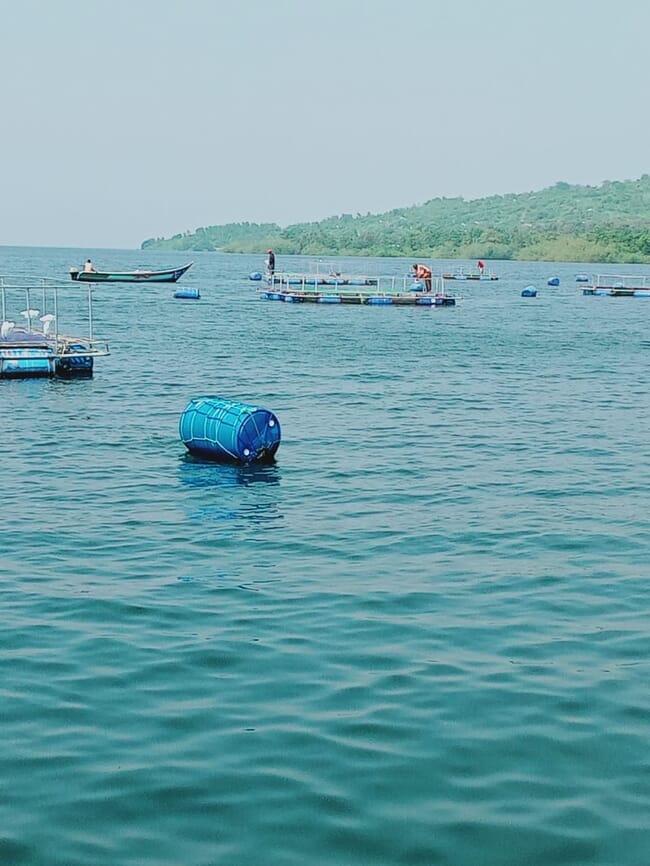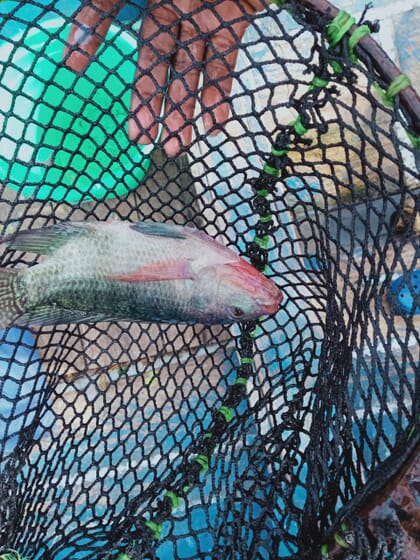The country’s aquaculture industry is still at an early stage of development, but Dr William Nyakwada, the interim chairperson of the association, believes that the time is right to ensure that the future growth of the sector takes place in a sustainable manner.
Dr Nyakwada began farming off Mfangano Island in Lake Victoria in 2017, having previously worked for the Kenyan Government and the World Meteorological Organization.

He established a company called The Strategist Kenya Limited and currently operates 13 cages, each producing around 17,000 tilapia per cycle. Since he started in 2017 the number of tilapia producers on the island has increased from two to five and he sees scope to grow the company, and the industry in general, substantially. However, he also notes that the impact of the industry’s growth on water quality needs to be monitored.
“The capacity of the lake is very high – there’s plenty of space, the water quality is excellent, and the water temperature is relatively stable. But Lake Victoria should also be viewed as one giant pond. It’s important that we share ideas and share best practices, to ensure that the industry can grow without suffering from fish health issues. At the moment we are very fortunate because in Lake Victoria there have been so few health issues to date: no medicinal intervention is required, only the occasional use of salt. Some gill health issues are occasionally experienced, but these clear up if we stop feeding for a few days,” he reflects.
Dr Nyakwada also believes that establishing a Commercial Aquaculture Association will help to advance the economic sustainability of the farmers and assist in developing potentials for value addition, tapping markets beyond the borders of Kenya and lowering the costs of feeds and research.
“One of the objectives for establishing the association is for the tilapia produced by members to remain competitive in the face of substantial, cheap, low quality tilapia imports from China, which are undercutting our prices,” he explains.
Other issues we hope the association will address include ensuring a reliable supply of affordable feed as well as access to better quality fingerlings.
“The sex-reversal process used in the fingerlings we do have access to is not always successful, so the fish often reproduce in the cages, which makes it harder to harvest them at the right size,” Dr Nyakwada notes.
There are currently several tilapia producers in the Kenyan part of Lake Victoria looking to join the association. However, Dr Nyakwada is keen for a greater volume of producers – not just from the Lake Victoria area – to become members too.
“We intend to make a call for more members to join the association now that it has been registered and would welcome the addition of fish farmers from the coast as well as inland pond-based smallholders,” he says.

Dr Nyakwada currently sells his tilapia domestically – both in the local area and in Kenya’s urban areas – in whole, gutted form. However, he says that he struggles to make his operation profitable and believes that the formation of an association will help all Kenya’s producers.
“It will allow us to add-value to our products and grant us access to bigger markets,” he argues.
Dr Nyakwada is convinced that it will help them to differentiate their product from cheap Chinese imports.
“We need to use the best technologies, the best strains of fish and the best organic feeds,” he says.
At the moment, according to Dr Nyakwada, Kenya’s aquaculture sector is not receiving any state support, but he hopes that this might materialise once the government has finalised its aquaculture policy. He is also open to the idea of entering commercial partnerships.
“There has been some support from NGOs, but we’re also keen to consider going into commercial partnerships with foreign operators. We think that these could help to change the lives of many, reduce poverty and enhance food security,” he concludes.

